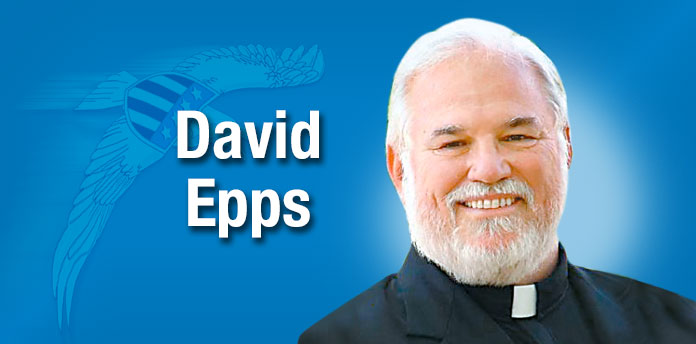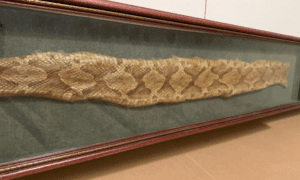You may see strange marks and smudges on the foreheads of some people as you go through the day next Wednesday. There are a few things you can discern about the people who bear these black smudges.
It means that they likely have been to church somewhere today. It means that they are considering their own mortality and evaluating where they are in life. It may mean that they are re-thinking their priorities and/or their values. It means that they are setting aside the next forty days of their lives, not counting Sundays, for contemplation and, perhaps, spiritual or physical change. It means that they have entered a new season in the Christian calendar.
Those marks are not dirt, so it would be rude to suggest they wash their foreheads. No, rather than dirt, those marks or smudges are ashes, specifically ashes from dried palm branches. It means that this day is Ash Wednesday and, all over the world, it is the season of Lent.
In the Eastern Orthodox Church, Great Lent begins on Monday, February 27 this year. The vast majority of Christians and Christian churches observe Lent. However, some Christians, more than one would expect, especially in the United States, are totally unaware that there is even a Lent at all.
Lent is a season, prior to Easter Sunday, that Christians examine their own lives in the light of God’s truth and expectations as revealed in scripture. It is a time for repentance, fasting, participation in spiritual disciplines, and a time of denial.
The purpose is to reflect on Jesus Christ and consider his suffering, his death, and his resurrection. The goal is to become a better Christian, not just during Lent, but throughout each year. For some, it will be a return to church and the church family, especially after the end of the pandemic.
Oftentimes, people focus on the denial aspect of Lent — the “giving up” of something for a season. Some give up social media during Lent. Others set aside something they enjoy, such as chocolate or sweets. Others might fast meat. Some will sacrifice sleep, getting up an hour or so earlier to spend additional time in prayer and the reading or study of the Bible.
Still others will take this as a time to cease using foul language, quit smoking, break free from pornography, lose weight, or stop spending so much time on phones and tablets. It’s an individual thing and yet one participates with hundreds of millions of believers locally and globally.
Lent can be a time of forgiveness — not only our seeking God’s forgiveness, but extending forgiveness to people who have hurt us or done harm to us. It is said by many that Lent is a time of “laying things down,” and that is true.
But how about if we lay down bigotry? Or the need to be right all the time? What if we lay down bitterness, or anger, or gossip, or envy? What if we laid down hatred? Whatever one thinks or believes about right and wrong, what if we chose to lay down our need to judge others, to be critical or condemning? What if we actually tried to help them in their time of distress?
What would we do if we were in the crowd that dragged a woman into the street, a woman caught in the very act of adultery, to Jesus? The Law demanded that she have stones pummel her and smash the life out of her. It was a terrible, brutal, and public death — a death which did not always come quickly.
Her bones would be broken, her organs ruptured, her head caved in. Doubtless, her accusers already had heavy rocks in their hands. But that day, she received mercy and not justice.
And isn’t what we all hope for when we are found guilty? What if we didn’t demand justice for wrongs done — especially those done to us — and extended mercy?
At the core, Lent is a hopeful season. It is a season in which hope and joy await at the end. It is also a season in which the possibility of change, of growth, or transformation is part of the process and progress. It is a time when the Christian recognizes that life is always shorter than we think it will be so let us make the most of the time we have.
Those ashes on our foreheads remind us that we are dust and to dust we shall return. The marks do not remind us that we are perfect — very far from it. They remind us that, were it not for Christ, we are lost and are without hope.
But the marks are temporary. The season of Lent will begin next Wednesday. The season will end, as seasons always do, and what awaits at the end of the season of change is the season of the Resurrection.
[David Epps is the Rector of the Cathedral of Christ the King (www.ctk.life). Worship services are on Sundays at 10:00 a.m. and on livestream at www.ctk.life. The evening Ash Wednesday service will be at 7:00 om, February 22. He is the bishop of the Diocese of the Mid-South (www.midsouthdiocese.life). He may be contacted at [email protected].]











Leave a Comment
You must be logged in to post a comment.